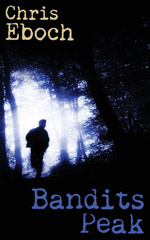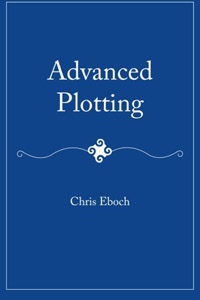by Chris Eboch
You’ve heard about the enormous slush piles at publishing houses. And no doubt you’ve heard what’s in those piles—90 percent inappropriate submissions. These can be outrageous mistakes, such as sending fiction to a publisher that only does nonfiction, or even erotica to a children’s book publisher.
You would never make such a beginner mistake. You understand the importance of market research. But are you doing the best possible job with it?
Many editors report “close but not quite” submissions. Marileta Robinson, Senior Editor at Highlights for Children, says, “The majority of submissions we see are in the ballpark of meeting our guidelines. That’s not to say that the majority are right for Highlights. Tone, length, writing quality, age appropriateness, and subject matter have a great deal to do with a manuscript’s chances of success.”
Digging Deeper
2016 market guides are coming out in time for the new year. These are a great place to start your research. They list hundreds of publishers, with details about what the editors want. Most include a category index, which can help you narrow your selections. The listings then give detailed writers’ guidelines.
Don’t stop there, though. Most publishers now post their catalogs online. These help you understand what the market guide listings mean, and identify differences between a publisher’s imprints. Websites may also offer more detailed and up-to-date writers’ guidelines. The final step is to read some of the publisher’s offerings.
Robinson suggests, “Reading the guidelines and current needs posted on our website and studying several issues of the magazine can help a writer learn what we are and are not looking for.”
Molly Blaisdell, author of the picture book, Rembrandt and the Boy Who Drew Dogs, starts market research with “a reader’s approach. I learn about books all over—networking at conferences, going to bookstores, chatting with folks online.” She keeps a journal that lists each book’s title, publisher and editor, plus notes about the editor, and any personal contact.
After gathering this information, Blaisdell keeps it organized with a submission spreadsheet. “I start a new line every time I learn the name of a new house or editor that I am interested in. After some research I will add the title of my book that I think best connects with that house. I gather hard concrete evidence about what these editors and agents like: books, genres, etc. That stuff goes in the comments.”
Once you have all the market information, you can use it in your queries to show the editor that you understand her needs. “My queries are always specific,” Blaisdell says. “I met you at the XYZ conference. I read about you on XYZ blog. You edited XYZ book. I love that book and feel a connection to my work because of XYZ. I’m sending to you because you like XYZ. If the editor or agent that you are interested in has a blog, you need to become a faithful reader and post on it sometimes.”
The payoff? Blaisdell says, “If I glance down my spreadsheet, my last 20 submissions all led to personal responses [such as] requested manuscripts or a wish to see more work.”
Time Well Spent
All this research sounds like a lot of work, but, Blaisdell says, “You have to be pretty lazy these days to not target houses. Just Google the editor’s name! Don’t know the editor? Google ‘editor’ and the book title and the author’s name.”
With all the information available, beware of getting carried away by market research. “The tricky thing is not wasting your time,” Blaisdell says. “You should be working toward creating a list of targeted editors. Do not collect any information about anyone that is not a real connection. Do not put a name in your spreadsheet without a reason!”
Writers’ conferences can also provide insight to an editor’s taste. A critique or pitch session can also help you jump over the slush pile, or reach editors who aren’t generally open to submissions. Make sure you have a suitable manuscript before submitting, though. At one conference, I met an editor and we got along well. But I was writing historical fiction and fantasy at the time, the two genres he dislikes. Later, I developed an original paperback series—just what he published. I sent him the proposal and first manuscript. A month later, he called to express his interest in the Haunted series, and we contracted for three books, The Ghost on the Stairs, The Riverboat Phantom and The Knight in the Shadows. Networking paid off—but only because I paid attention to my market research and waited until I had something he wanted.
Go ahead and grab a new market guide as a holiday present to yourself. But know that your marketing journey is just beginning. Researching markets and making connections is a year-round process—one that’s worthwhile when it leads to the gift of publication!
 Chris Eboch writes fiction and nonfiction for all ages. In Bandits Peak, a teenage boy meets strangers hiding on the mountains and gets drawn into their crimes, until he risks his life to expose them. The Eyes of Pharaoh is an action-packed mystery set in ancient Egypt. The Genie’s Gift is an Arabian Nights-inspired fantasy adventure. In The Well of Sacrifice, a Mayan girl in ninth-century Guatemala rebels against the High Priest who sacrifices anyone challenging his power. Her writing craft books include You Can Write for Children: How to Write Great Stories, Articles, and Books for Kids and Teenagers and Advanced Plotting.
Chris Eboch writes fiction and nonfiction for all ages. In Bandits Peak, a teenage boy meets strangers hiding on the mountains and gets drawn into their crimes, until he risks his life to expose them. The Eyes of Pharaoh is an action-packed mystery set in ancient Egypt. The Genie’s Gift is an Arabian Nights-inspired fantasy adventure. In The Well of Sacrifice, a Mayan girl in ninth-century Guatemala rebels against the High Priest who sacrifices anyone challenging his power. Her writing craft books include You Can Write for Children: How to Write Great Stories, Articles, and Books for Kids and Teenagers and Advanced Plotting.
Learn more at www.chriseboch.com or her Amazon page, or check out her writing tips at her Write Like a Pro! blog. Sign up for her Workshop newsletter for classes and critique offers.
Chris also writes novels of suspense and romance for adults under the name Kris Bock; read excerpts at www.krisbock.com.
This article was originally published in the December 2010 issue of SouthWest Sage and is reprinted here by permission of the author.



Leave a Reply